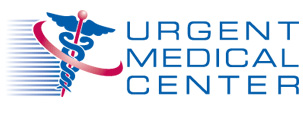
Keeping up to date with all vaccines is important for both adults and kids. But how many vaccines exist out there, and which ones are really important? Allow us to provide answers about the variety of vaccines available, plus information about 5 important vaccines you may or may not know about.
How Many Vaccines Are There?
Currently there are vaccines available to protect you from 23 different diseases and illnesses. Without a vaccine, all of these illnesses can cause serious side effects, ranging from hearing loss, infertility, paralysis, and even death.
Current vaccines provide protection from:
- Diphtheria
- Influenza
- Hepatitis A and B
- Measles
- Mumps
- Haemophilus Influenzae Type B
- Human Papillomavirus (HPV)
- Meningococcal
- Pertussis
- Pneumococcal
- Polio
- Rotavirus
- Rubella
- Shingles (Herpes Zoster)
- Tetanus
- Chickenpox (Varicella)
- Yellow fever
- Tuberculosis
- Anthrax
- Cholera
- Typhiod Fever
- Rabies
Which Vaccines Do You Need?
During different stages of life, various vaccines are important to your health. Children under the age of 2 receive the most vaccines, but throughout life other vaccines are also recommended, such as the first semester of college, before traveling abroad, or when you reach the age of 60.
The American Academy of Pediatrics along with the Florida State Department of Health recommends that you remain up to date on all of your vaccinations. Think of vaccines as time sensitive, they must be taken care of at the right time to help avoid the potential for serious illness. The best way to determine which vaccines you currently qualify for is by talking to a doctor.
5 Important Vaccines You Should Know About
Although every vaccine listed above ranks high in importance, here we explain 5 of these vaccines in more detail.
1. Influenza: The Flu Vaccine
The flu runs rampant every year, but you can protect yourself from the debilitating illness by getting an annual flu shot. One reason you need to get a flu shot each year is because the strain of flu going around fluctuates and changes with time. Flu season starts around October or November, at which point you can visit Urgent Care for your flu shot, either administered through injection or a nasal spray.
2. Varicella: The Chickenpox Vaccine
It wasn’t long ago that almost all children went through the itchy and painful suffering of chickenpox. I remember parents encouraging children to hang out with infected children in order for them to catch chickenpox young, because when adults develop chickenpox the virus can be a lot worse. The chickenpox vaccine is 85% effective at keeping a mild outbreak of the illness from developing (Read More).
3. MCV: The Meningococcal Vaccine
Children between the ages of 11 and 18 should get one dose of the meningococcal vaccine. College freshman should also get one dose of the vaccine before moving into a dormitory. Meningococcal disease is very serious, as it poisons the blood and attacks the brain and spinal cord. Any contact with second hand smoke puts children at risk for the disease, including kissing, sharing utensils or living in close quarters with a smoker.
4. Herpes Zoster: The Shingles Vaccine
As an adult, you don’t get nearly the number of vaccines young children receive, but there are still recommended vaccines to help maintain your health. One of these important adult vaccines includes the shingles vaccination. If you have had the chickenpox virus, you will never get chickenpox again, but the virus lives dormant in your system and if it becomes reawakened you will develop shingles.
Shingles can develop at any age for a wide range of reasons, which are not yet fully understood. Adults over 60 are the most likely to develop shingles, meaning 60 is the recommended age you should get the shingles vaccine. The shingles vaccine can reduce your risks for developing an outbreak of shingles by 50%.
5. Three Vaccines In One: The TDaP Booster
The TDaP vaccine protects against 3 big illnesses, including:
- Diphtheria
- Tetanus
- Whooping cough (Pertussis)
The age range eligible for this vaccine is 10 to 64. The TDaP vaccine works as an active immunization booster and is administered as a single injection.
Are You Up To Date On Your Vaccines?
All throughout life you require different vaccinations, and depending on your lifestyle you might require more or less vaccines. Don’t leave your immune system vulnerable and unprotected, it’s vitally important that you keep up to date on all necessary vaccinations.
Want to take care of your vaccination needs quickly? Visit Urgent Medical Center today!




